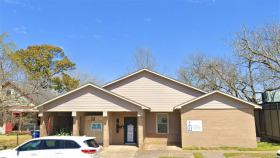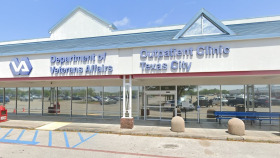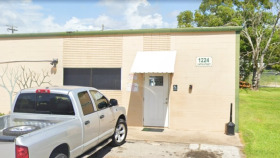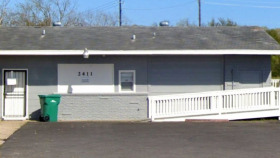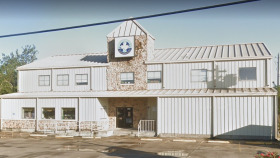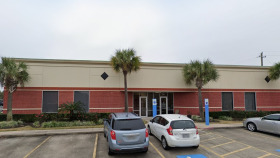Alcohol and Drug Use Statistics in Texas City, Texas
Texas City is part of Galveston County, Texas. The following statistics illustrate the extent and impact of drug and alcohol misuse in Galveston County and the corresponding substate region:2,3,4
Almost 2% of the residents 12 years and older reported using cocaine in the past year between 2016 and 2018.
Nearly 55% of the residents 12 years and older reported using alcohol in the past month between 2016 and 2018.
Nearly 55% of the residents 12 years and older reported using alcohol in the past month between 2016 and 2018.
Levels of Care for Rehabs in Texas
The following types of substance abuse treatment offer various levels of care. Some Texans enter treatment at the most restrictive levels and move through the continuum of care, while others only require the least intensive interventions.
Alcohol and Drug Detoxification
Detox is the process of safely and comfortably removing drugs or alcohol from your system. This occurs under medical supervision in a hospital, residential, or outpatient setting, to manage withdrawal symptoms and allow Texans to transition into formal treatment services.
Residential or Inpatient
Residential or inpatient treatment involves living at the rehab facility and receiving 24/7 supervised care. A combination of treatment interventions is offered, including individual and group therapy, nutritional counseling, experiential therapies, and medication.
Partial Hospitalization Programs (PHPs)
PHPs allow Texans to live at home while attending treatment at a hospital. You may participate in many of the same treatment methods as inpatient care, but you can return home during non-treatment hours.
Intensive Outpatient Programs (IOPs)
A step down from a PHP, IOPs allow you to attend a few hours of counseling over several days each week. This allows you to spend the rest of your time at home, school, working, or fulfilling other obligations.
Standard Outpatient
The least intensive treatment option, standard outpatient care involves one to two hours of treatment per week. Highly motivated people with a strong support system tend to find this level beneficial.
Relapse Prevention
Relapse prevention, also known as aftercare, begins when you complete a rehab program. It involves ongoing encouragement through therapy, 12-step groups, non-12-step groups, sober living homes, and other types of support.
How to Pay for Addiction Treatment in Texas City, Texas
Private Insurance
All insurance providers are required by law to provide coverage for substance abuse and mental health treatment services in some capacity. Coverage varies by plan, so Texas residents must contact their providers to learn about their specific coverage.
Texas Medicaid
The Texas Medicaid program offers health insurance for low-income residents. This includes various treatment services like inpatient drug rehab and outpatient substance abuse treatment. Most Medicaid services in Texas are delivered through managed care health plans under contract with the state. Before enrolling in a rehab program, individuals should confirm that the facility accepts Medicaid as a form of payment.
Texas Medicare
Texas Medicare is a federal program that provides healthcare coverage to residents with end-stage renal disease, those with certain disabilities, and those over the age of 65. Texas residents can use Medicare to cover the cost of drug addiction treatment services, including rehab. However, not all rehabs accept Medicare insurance. Texas offers a free helpline to guide residents through the complexities of Medicare coverage: 800-252-9240.
TRICARE in Texas
Texas TRICARE (West region) is a government program providing health insurance coverage to the U.S. Armed Forces military personnel, veterans, and their families. TRICARE coverage includes addiction treatment services, such as rehab and medication-assisted treatment.
Sliding Scale Rehabs
Sliding scale rehabs are income-based, charging only what Texans can reasonably afford based on how much they earn. To qualify for these programs, individuals must provide proof of income.
IHS-Funded Drug Rehabs
Drug rehabs funded by the Indian Health Service (IHS) provide free addiction treatment to Indigenous people in the U.S. and Alaskan Natives.
Traveling to and Within Texas City, Texas
There is plenty to do in Texas City during your stay for drug and alcohol rehab. Knowing how to travel to and from Texas City and within the city can take the hassle out of your experience. The following travel tips may be useful if you are seeking rehab in an alcohol or drug rehab in Texas City, Texas, or visiting a loved one receiving treatment at a Texas City drug and alcohol center:
- Texas City is 10 miles from Galveston and 37 miles from Houston.
- There are numerous hotels and motels for your stay when visiting Texas City, including affordable national-chain options, such as Best Western, Holiday Inn Express, La Quinta Inn, Comfort Inn, and Economy Lodge.
- Airport options close to Texas City include the George Bush International Airport and William P. Hobby Airport.
- Amtrak stations at La Marque (3 miles away) and Galveston (12 miles away) offer train service to and from Texas City.
- You may need a car to run most errands in Texas City.
- Gulf Coast Transit provides public transportation within Texas City and nearby communities. Bus service includes fixed routes connecting Texas City, La Marque, Dickinson, San Leon, and Bacliff at $1.00 for all passengers.
- Taxis, Lyft, and Uber are fast and convenient travel options within the region.
Texas Alcohol and Drug Laws
Texas lawmakers have enacted the following laws regarding substance use:1,2,3,4
Texas Good Samaritan Overdose Prevention Statute: This law is designed to encourage Texas residents to seek emergency medical attention during an overdose situation. It protects individuals who call 911 for assistance with a suspected overdose from prosecution for possession of certain controlled substances (if they have not called 911 for an overdose in the preceding 18 months).
Sandra Bland Act: This law provides for rehab for individuals arrested or convicted of non-violent crimes. Per this statute, Texas criminal justice officials must work to identify people with suspected substance use concerns and divert these individuals to an appropriate treatment facility rather than incarcerate them.
Texas Protections for Employees Seeking Addiction Treatment: Under the Family and Medical Leave Act (FMLA), Texas employees who voluntarily seek alcohol and drug treatment may be eligible for time off work for this treatment. The Americans with Disabilities Act (ADA) also provides some protections for employees who seek addiction treatment
Marijuana Laws: Texas law is among the strictest in the country regarding marijuana. Recreational use and growth are illegal, and medical use is legal but heavily regulated. Penalties for use, growth, possession, or sale of marijuana range from 180 days in jail and a $2,000 fine to life imprisonment and a $50,000 fine.
Resources
- Maxwell, J.C. (n.d.). State of Texas Drug Use Patterns and Trends, 2019.
- Texas Health Data. (n.d.). Texas Health Data – Opioid-Related Emergency Department Visits.
- Texas Health Data. (n.d.). Texas Health Data – Drug-Related Deaths.
- Substance Abuse and Mental Health Services Administration. (n.d.). 2016 -2018 NSDUH Substate Region Estimates – Tables.

